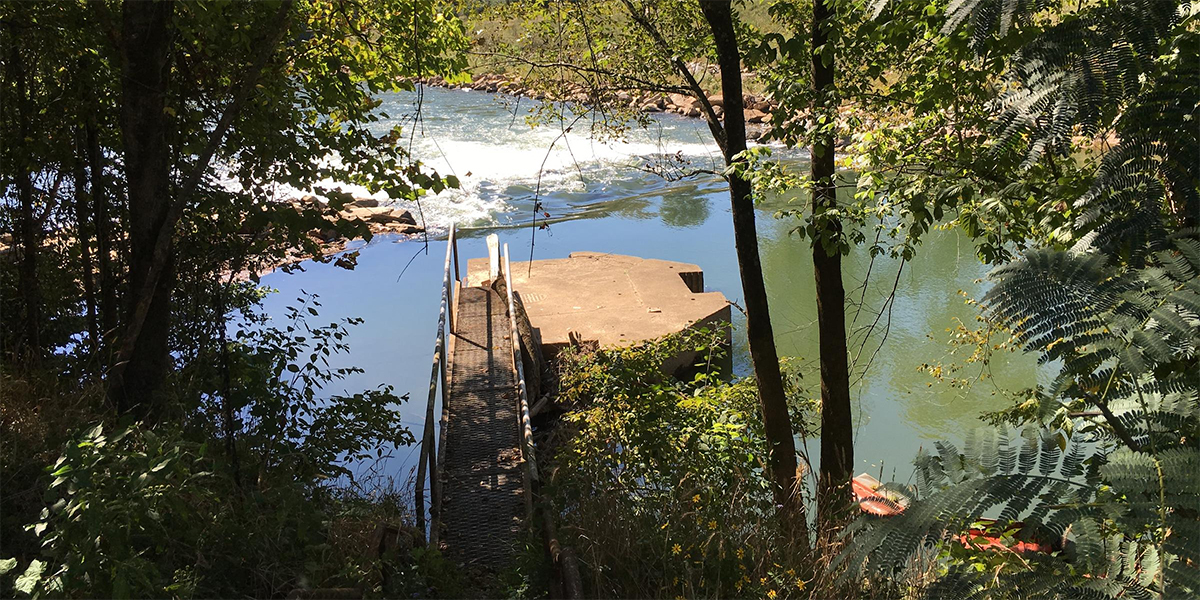Forgot Atlanta Has A River? One Group Wants To Change That

Molly Samuel / WABE
Atlanta has a river, but that can be easy to forget. For most people, the Chattahoochee doesn’t play a huge role in their day-to-day lives, aside from its enormous but also often-forgotten importance as Atlanta’s chief source of drinking water.
For walking, boating or swimming, most people – if they’re going to the Chattahoochee – head up to the Chattahoochee National Recreation Area, north of Interstate-285.
“That’s where most people know about the river. Even people that live in the city of Atlanta drive north to go up there,” said Jodi Mansbach, one of the founders of Chattahoochee Now. Mansbach wants to bring more attention to the rest of the river in the Atlanta area, as it passes the city and heads toward Alabama.
“What we’re focusing on is the 53 miles south of the Recreation Area,” she said.
Mansbach was at a park in northwest Atlanta, between Interstate-75 and the Perimeter, where the Chattahoochee rushes over rocks. It’s open to the public, but to get to this spot, you have to drive past a gate that says it’s not, then walk down an unmarked path, past some dangling barbed wire.
“There’s a huge opportunity here at Standing Peachtree Park to have a spectacular view of the river,” she said. “People like to sit near water, people are drawn to water.”
And though this is a bit off the beaten path now, more people could start coming here. The nonprofit Groundwork Atlanta is trying to open this area up to have a more accessible vibe.
“We would like to involve the community in shaping what the access looks like,” said Andrea Malloy, executive director of Groundwork Atlanta.
Chattahoochee Now released a report on Thursday that lays out a vision for the river: A series of parks and access points mixed in and around private, commercial and industrial property, covering 5,000 acres, from Standing Peachtree Park in Atlanta to Chattahoochee Bend State Park in Coweta County. And it puts forward some shorter term goals, like opening up more access points to the river, and creating more opportunities for activities along the river. The group is working with other nonprofit partners, and Ryan Gravel, who came up with the BeltLine, put the report together.
The City of Chattahoochee Hills is around the halfway point on the 53-mile stretch that Chattahoochee Now is looking at. Mayor Tom Reed, who attended a Thursday night workshop on the project, said his city is ready for this.
“We’re got some amazing properties that are on the river; I recognize the value of river access,” he said. “We don’t have any money to get anything done at the moment, and so becoming a part of this greater vision makes it more likely that our piece of it happens sooner.”
There are major hurdles, including the challenges of collaborating with many different cities and counties, negotiating around industrial sites, and working with landowners all up and down the river.
But it’s a big idea – like the BeltLine in its infancy – that could end up changing the relationship Atlantans have with their river.
9(MDAxODM0MDY4MDEyMTY4NDA3MzI3YjkzMw004))







